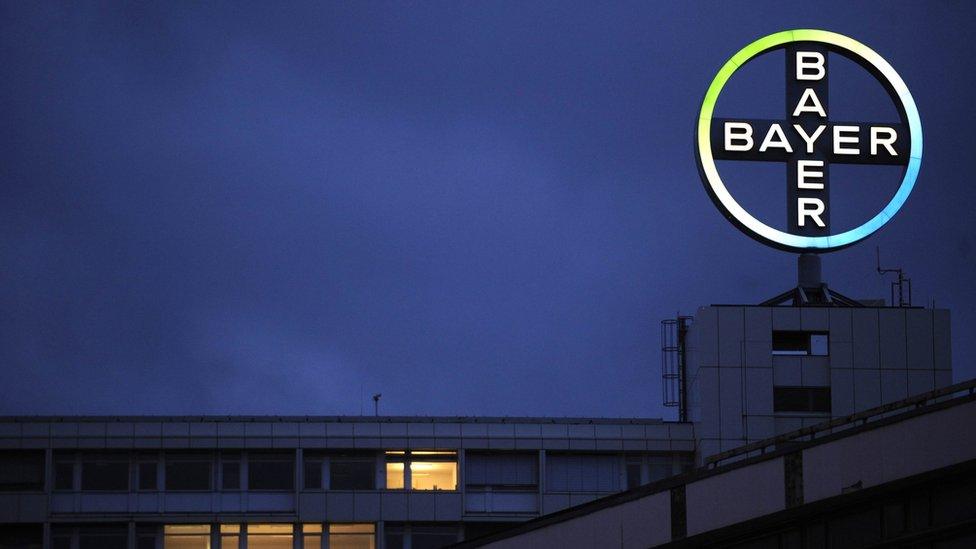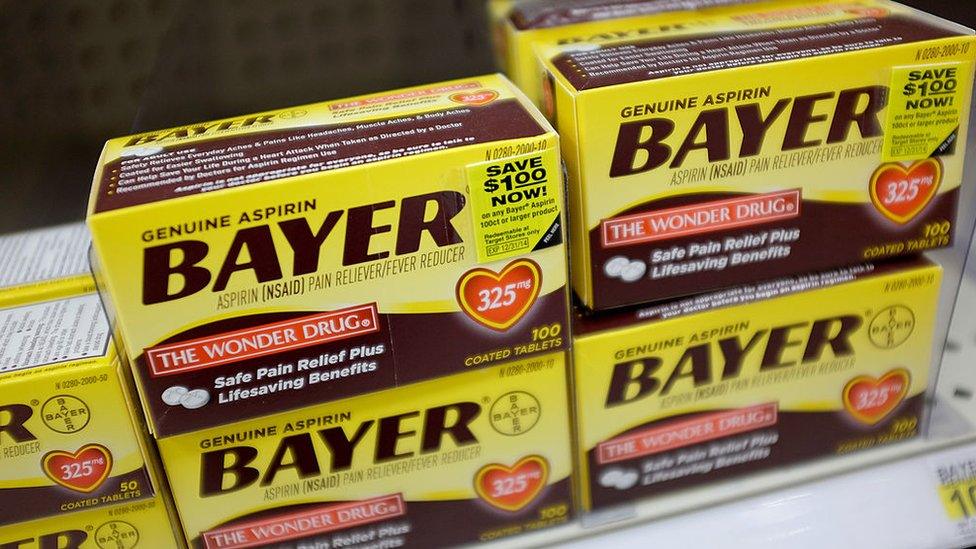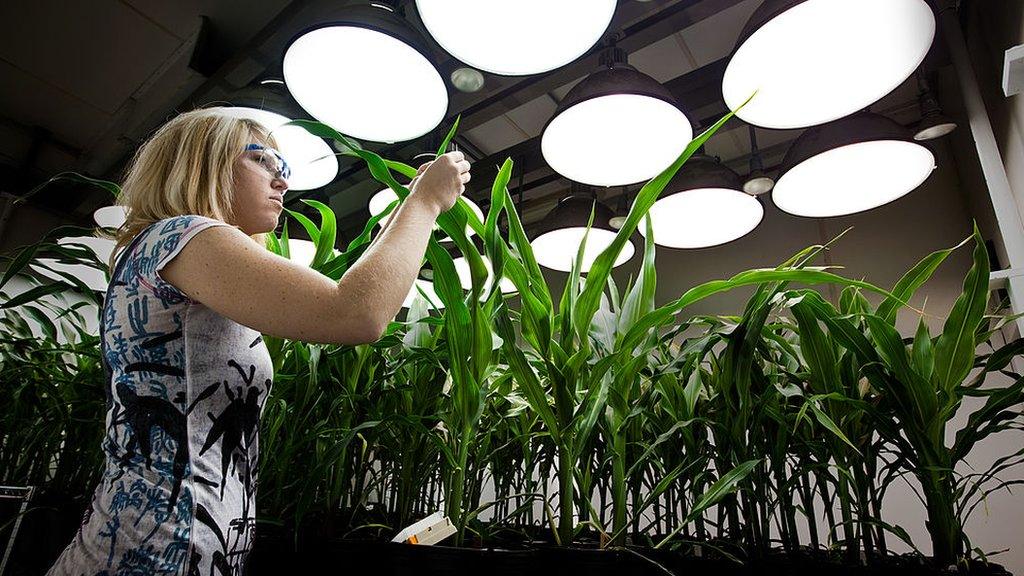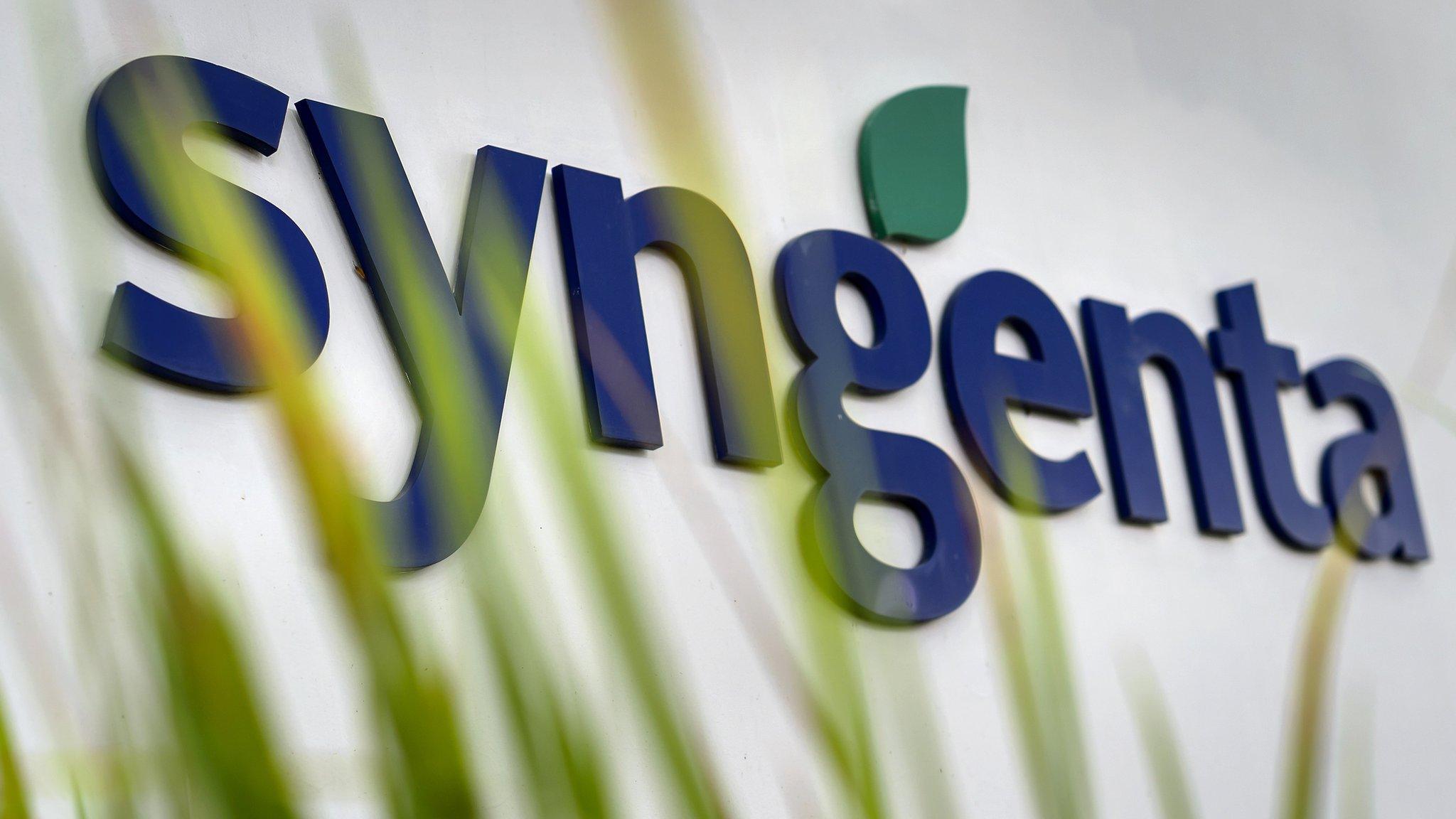Bayer's Monsanto bid to create biggest agricultural supplier
- Published

German drugs giant Bayer has made a $62bn (£43bn) offer for Monsanto, in a deal that would create the world's biggest agricultural supplier.
Bayer said the bid , externalwas an "extraordinary opportunity to create a global agriculture leader."
Monsanto is primarily known for genetically modified crops, often leading to vocal activist criticism.
Last week, news of the deal angered Bayer investors, with one describing it as "arrogant empire-building".
The offer marks the biggest ever bid by a German company, dwarfing the Daimler's $38.6bn acquisition of Chrysler in 1998.
John Colley, a Professor of Practice at Warwick Business School, said it was an unusual approach for a German firm, which he said typically opted for lower risk expansion.
"The Bayer bid is clearly designed to leave the board of Monsanto with little room for manoeuvre. The large cash bid means - despite Monsanto's dislike of European ownership - they will appear as though self interest is prevailing if they reject it.
"Few megabids go well and research shows more than half destroy value, and only around a quarter deliver on their promises," he said.

Bayer is better known for its pharmaceutical products
Bayer's farm business produces seeds as well as compounds to kill weeds, bugs and fungus, but it is better known for its healthcare products such as Asprin and Alka-Seltzer.
Analysts said if the deal went through, almost half of the merged firms' business would be agriculture, a mix likely to displease investors who had bought shares in Bayer for its pharmaceutical offering.
Bayer's shares, which fell 8% when the merger talks were announced last week, fell 3% in early trading.
The offer comes amid a wave of mergers in the industry.
'Perfect match'
Rivals Dow Chemical, DuPont and Syngenta have all announced tie-ups recently, although they have yet to be cleared by regulators.
The drop in commodity prices has put pressure on firms such as Monsanto, with farmers' cutting orders for supplies.
Bayer said the offer of $122 per share represented a 37% premium on the price of Monsanto shares before rumours about the takeover bid emerged in the media.
"Monsanto is a perfect match to our agricultural business. We would combine complementary skills with minimal geographic overlap.
"At the same time, ongoing consolidation activities in the industry make this combination by far the most attractive one," Bayer's chief executive Werner Baumann said in a statement.
He said he was confident that the Monsanto board would accept the offer, saying "we fully expect a positive answer".
Both companies had confirmed last week that they were in talks over a possible deal.
Industry mergers
Bayer has a market value of about $90bn, making it the second-largest producer of crop chemicals after Syngenta.
Monsanto, which has a market capitalisation of $42bn, attempted to buy Swiss rival Syngenta last year.
However, Syngenta ended up accepting a $43bn offer from ChemChina in February, although that deal is still being reviewed by regulators in the US.
After the unsuccessful bid, Monsanto announced plans to cut 3,600 jobs by the end of next year in a massive restructuring.
Bayer's acquisition of Monsanto is expected to be bigger in value than the ChemChina-Syngenta deal.
The biggest merger in the chemicals industry took place late last year when Dow Chemical teamed up with Du Pont to form a new $130bn company.
- Published19 May 2016

- Published3 February 2016
